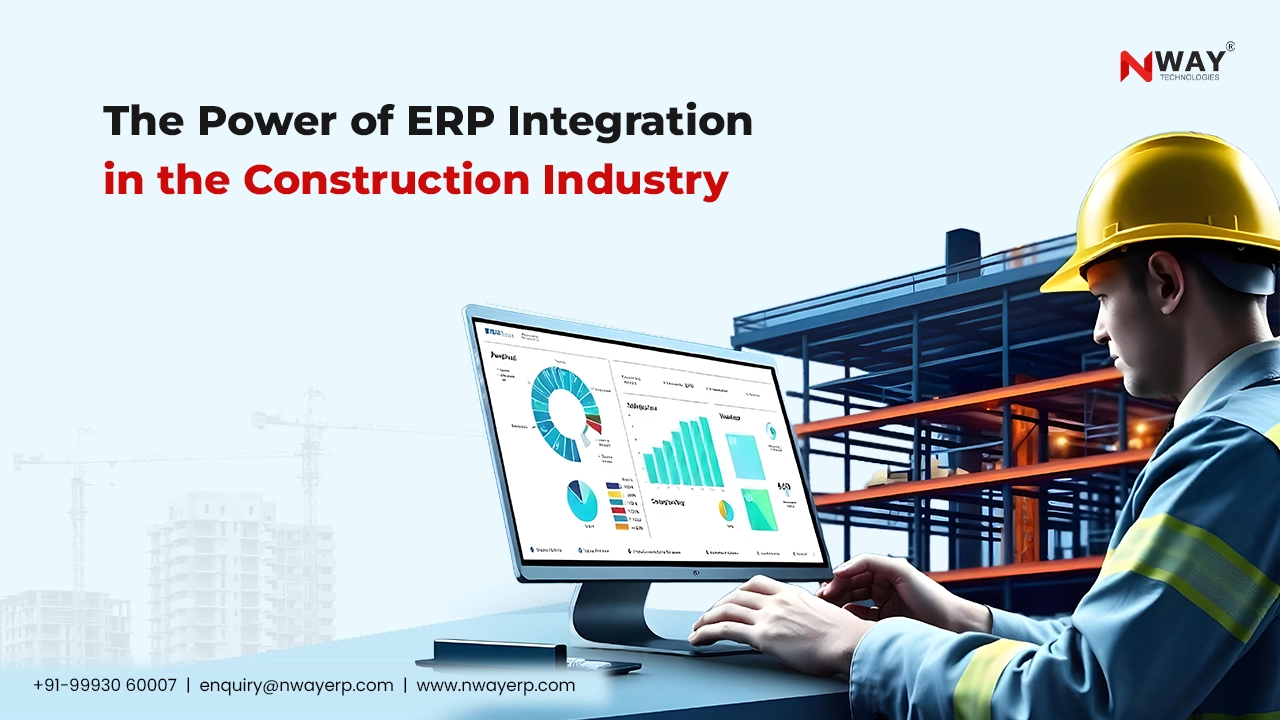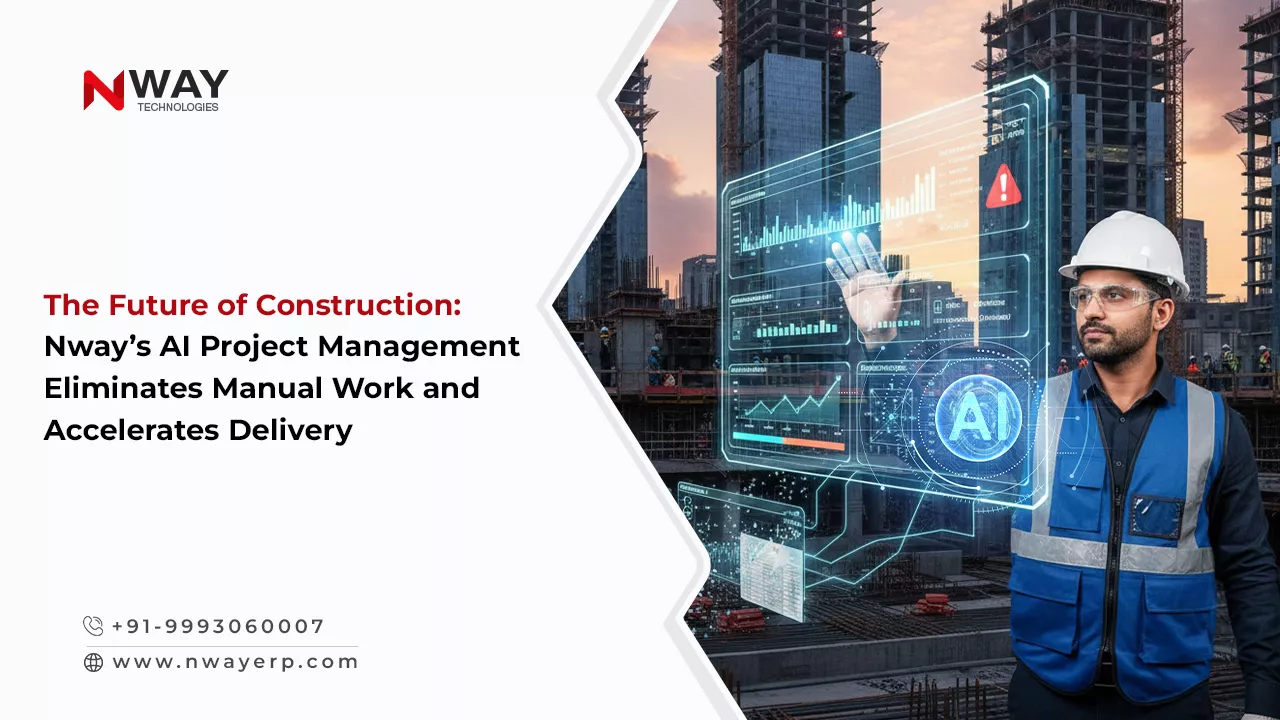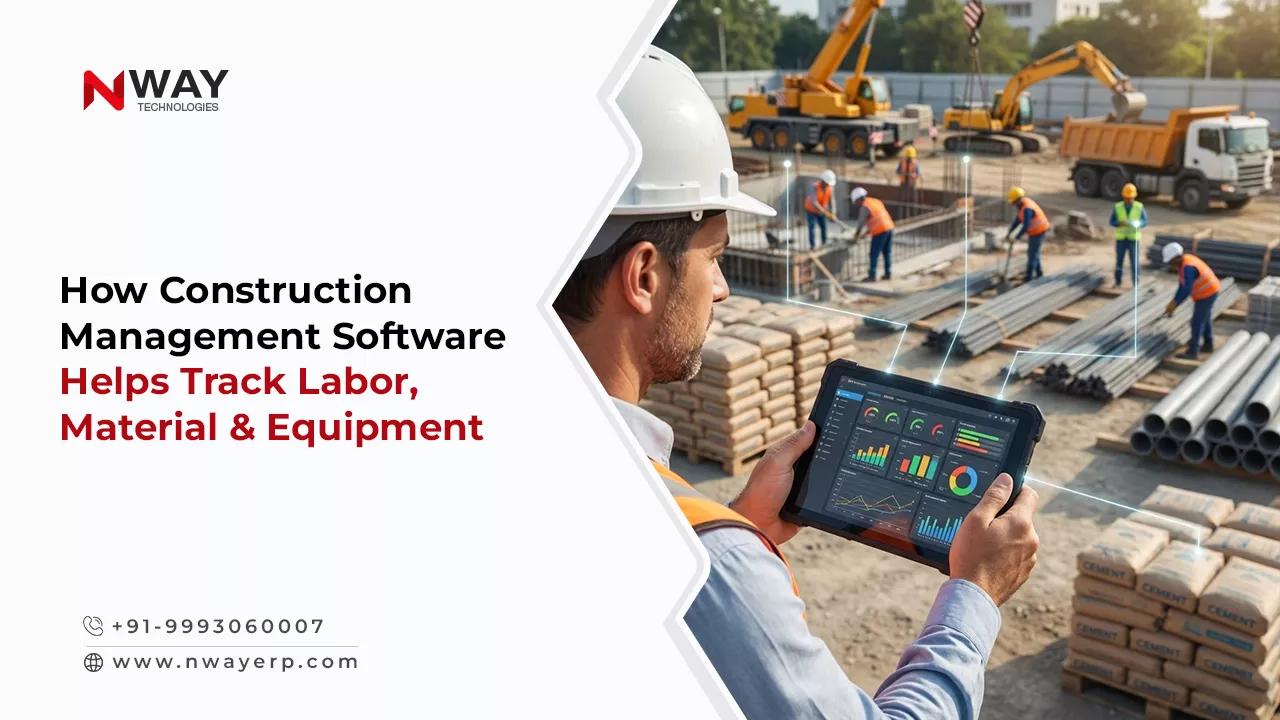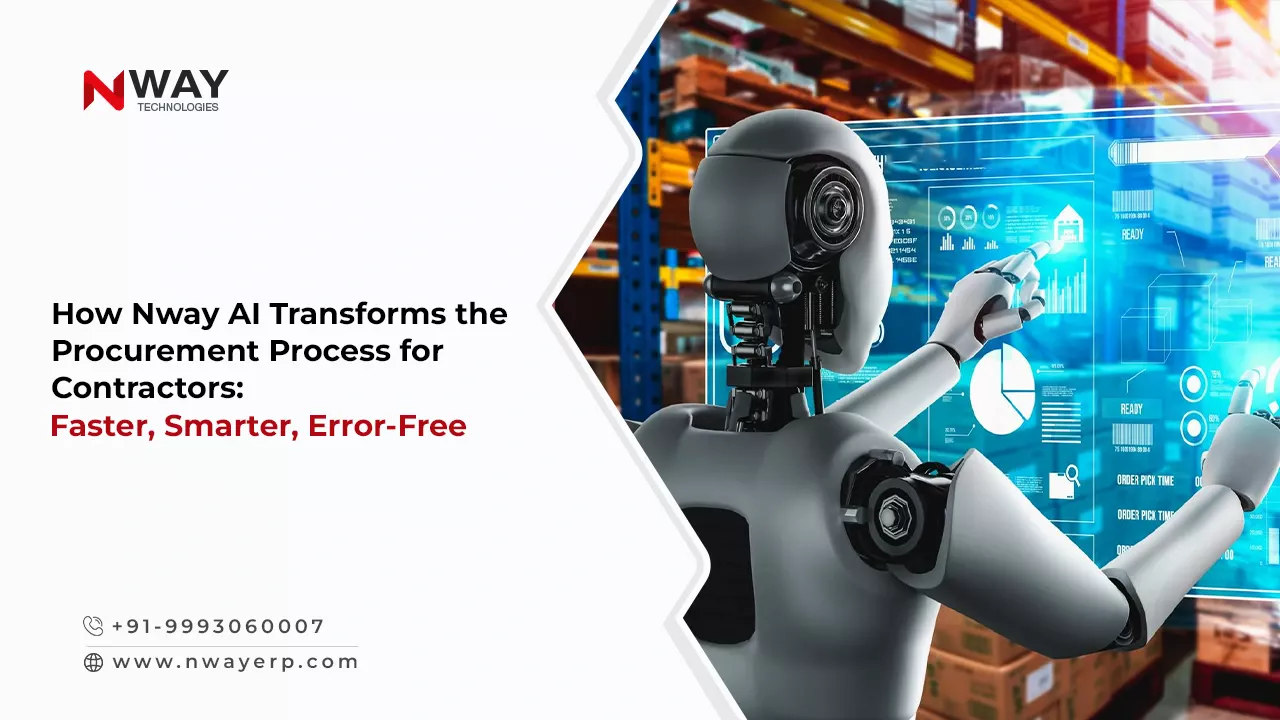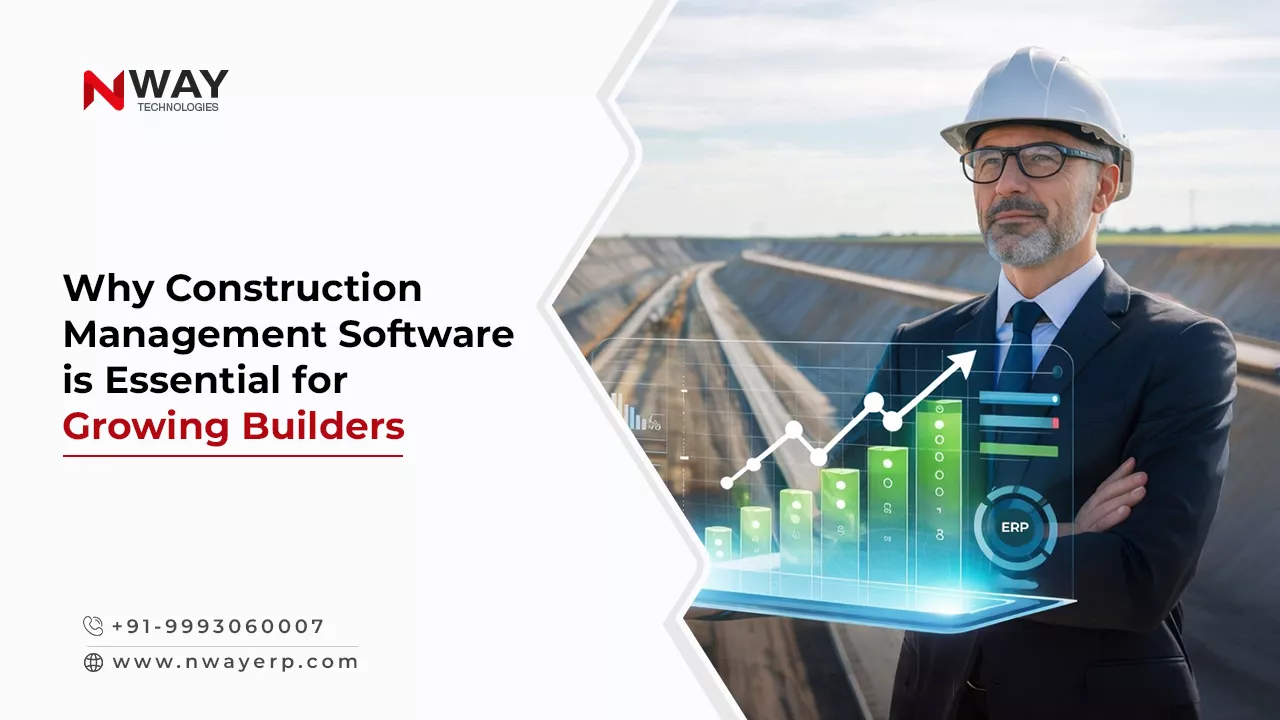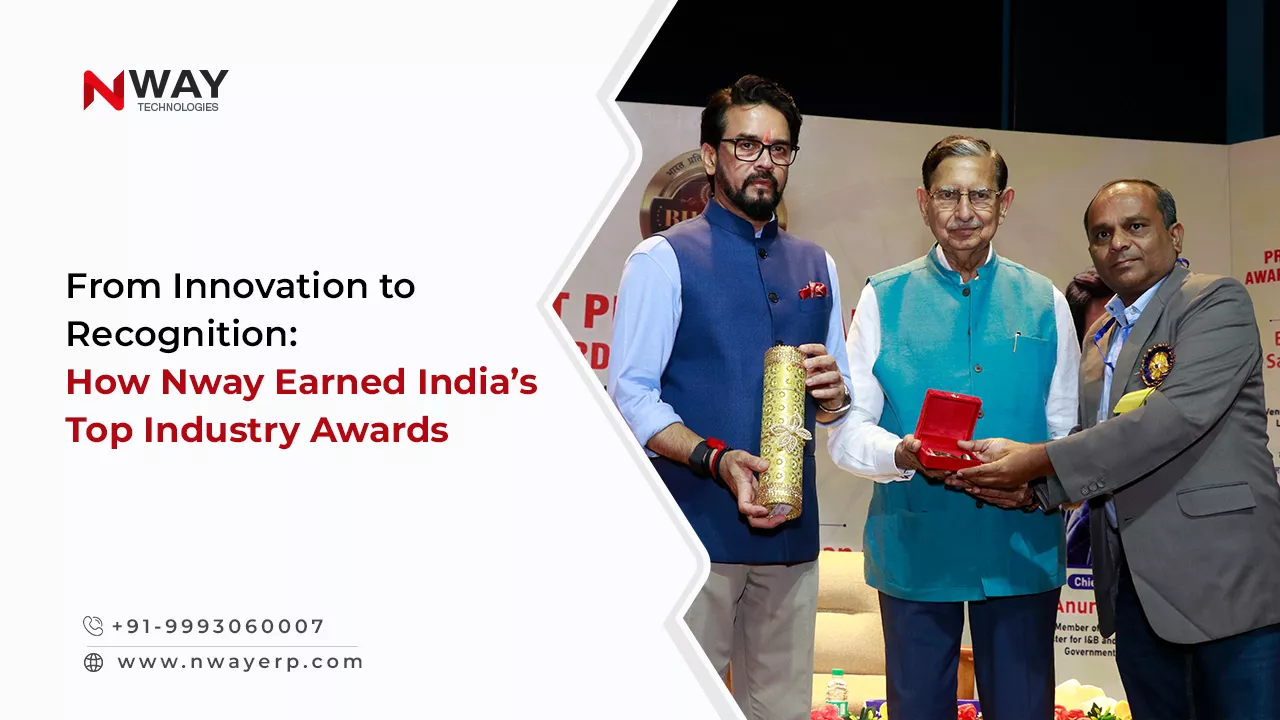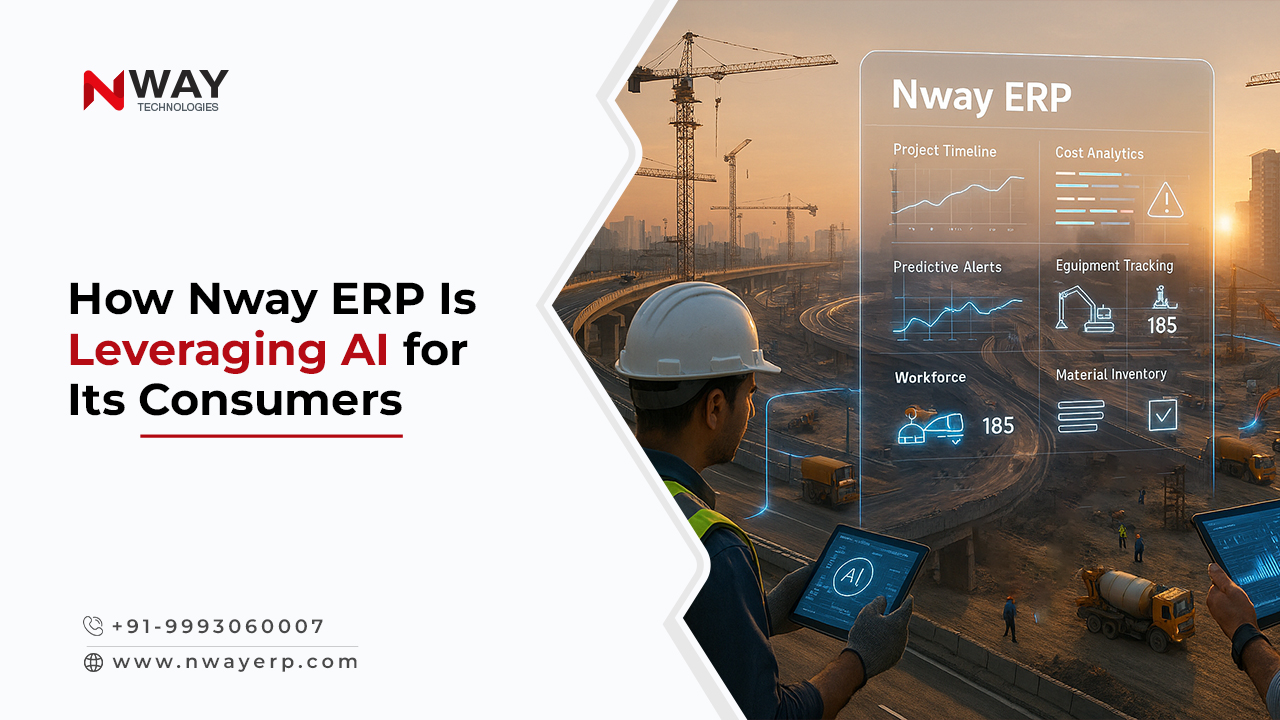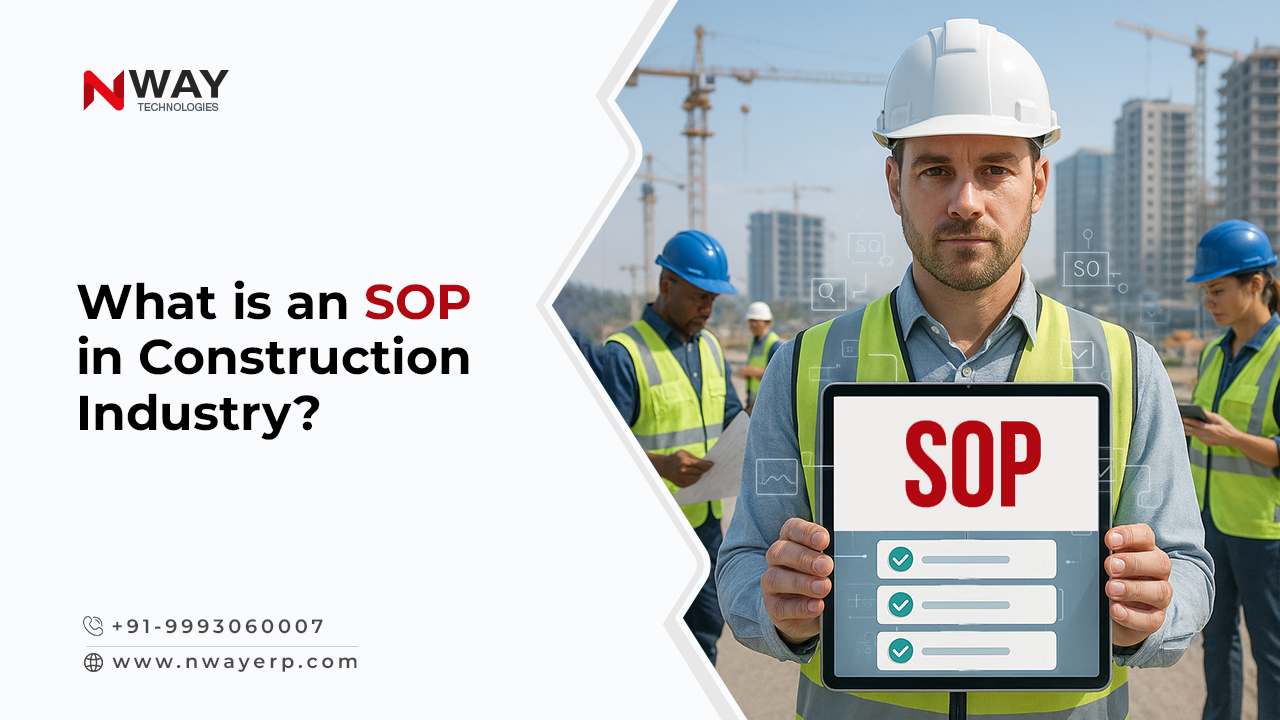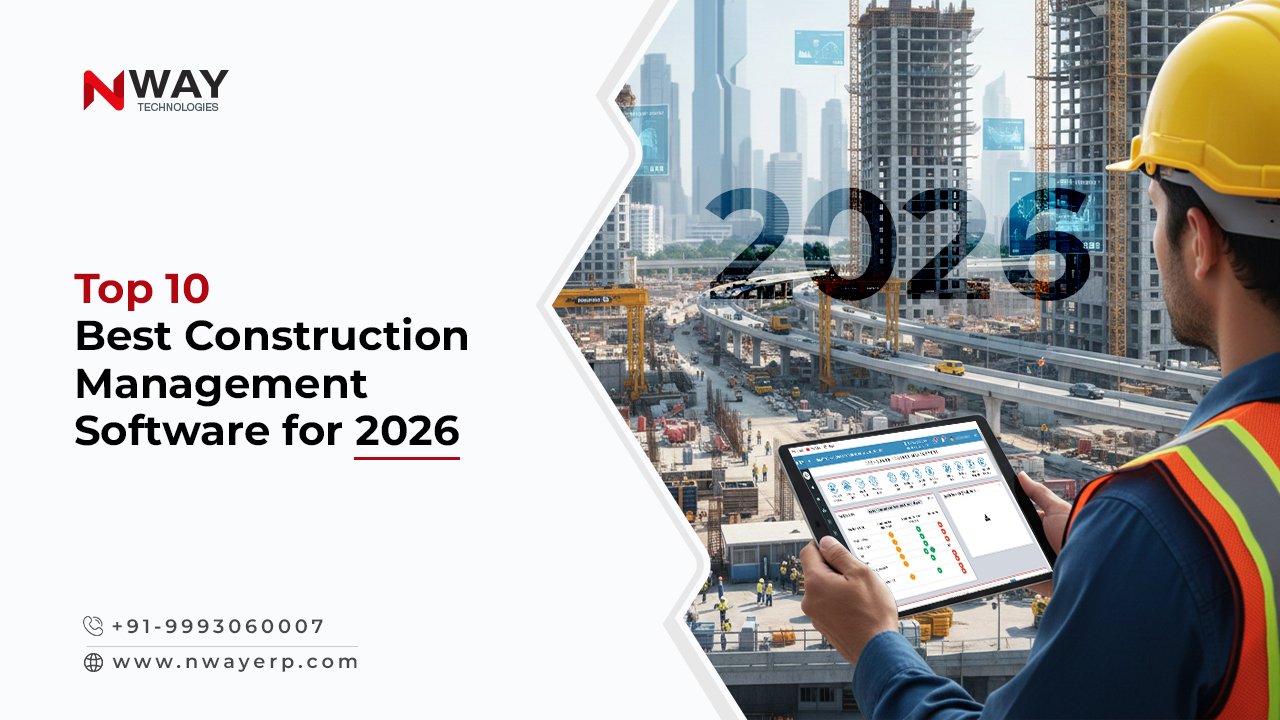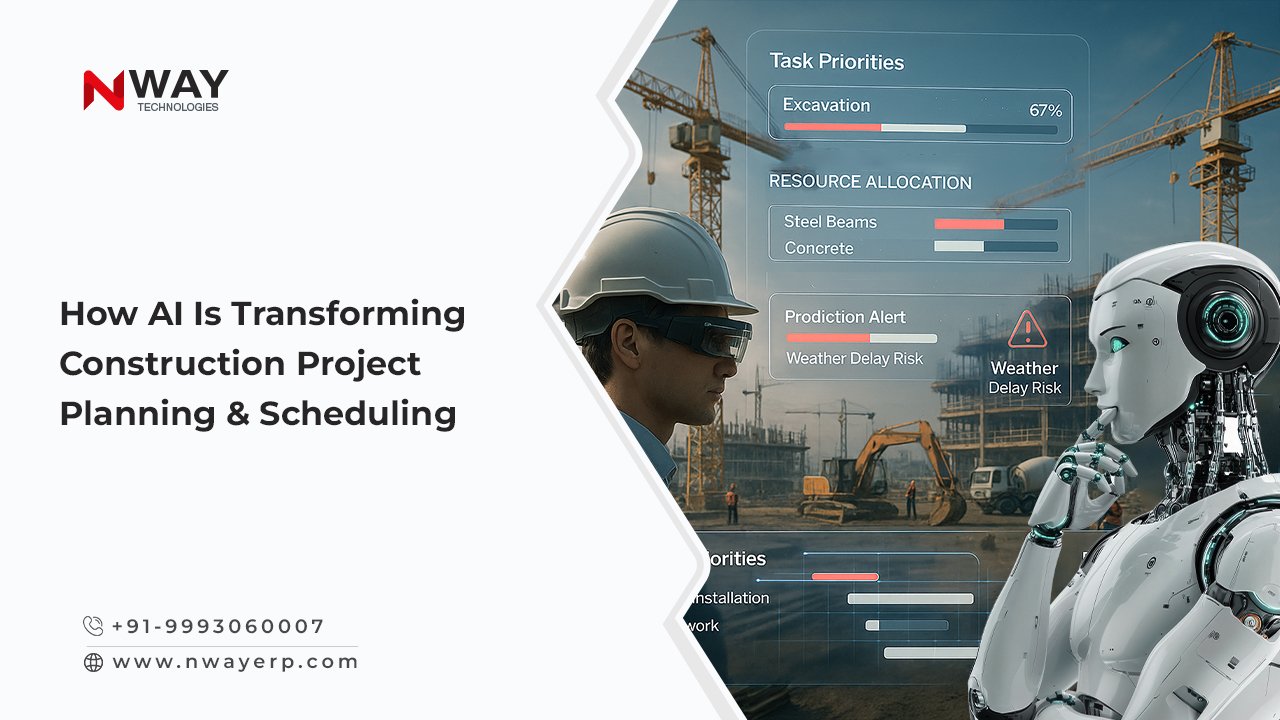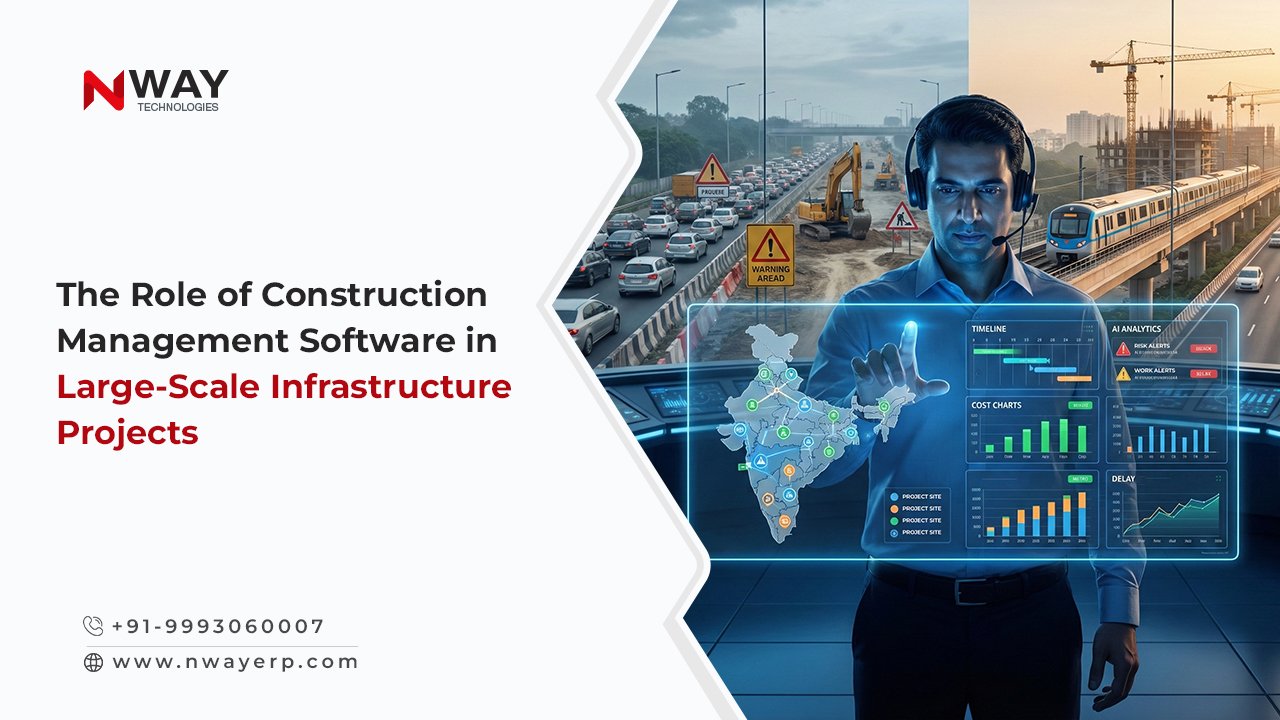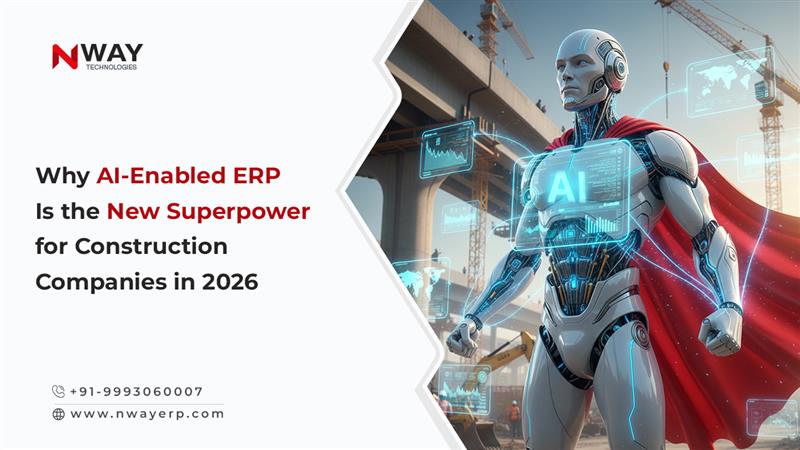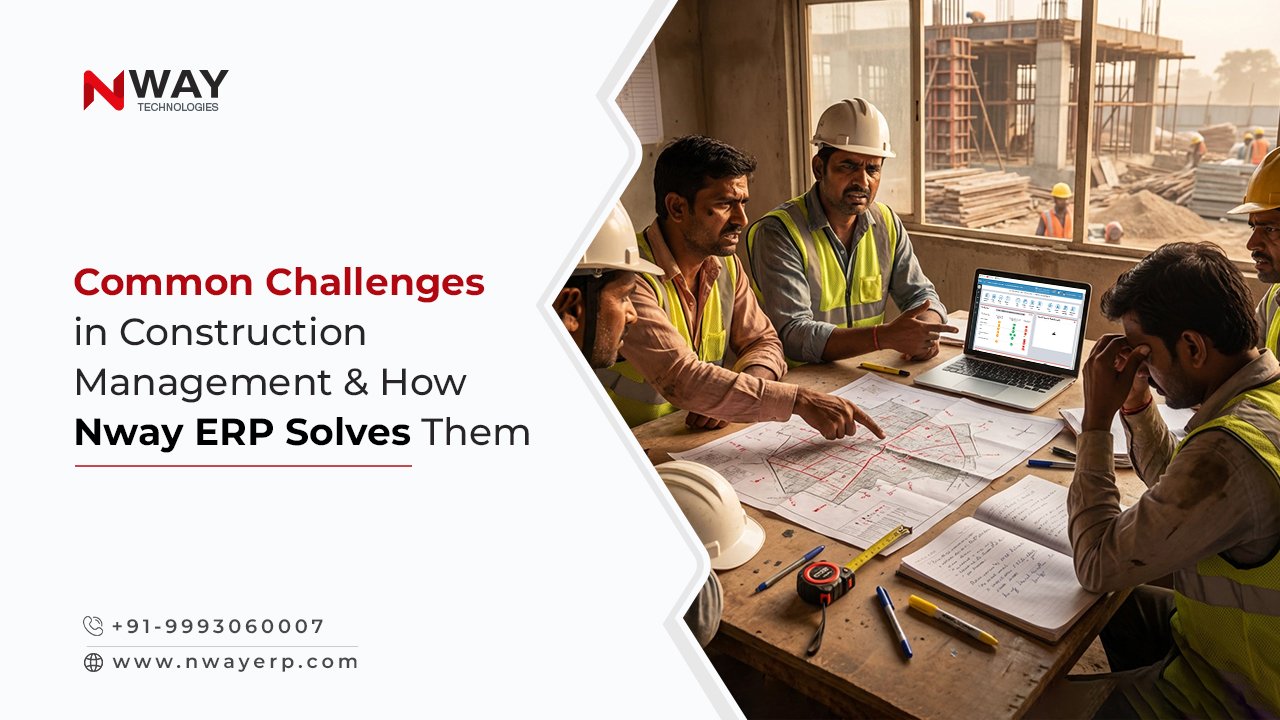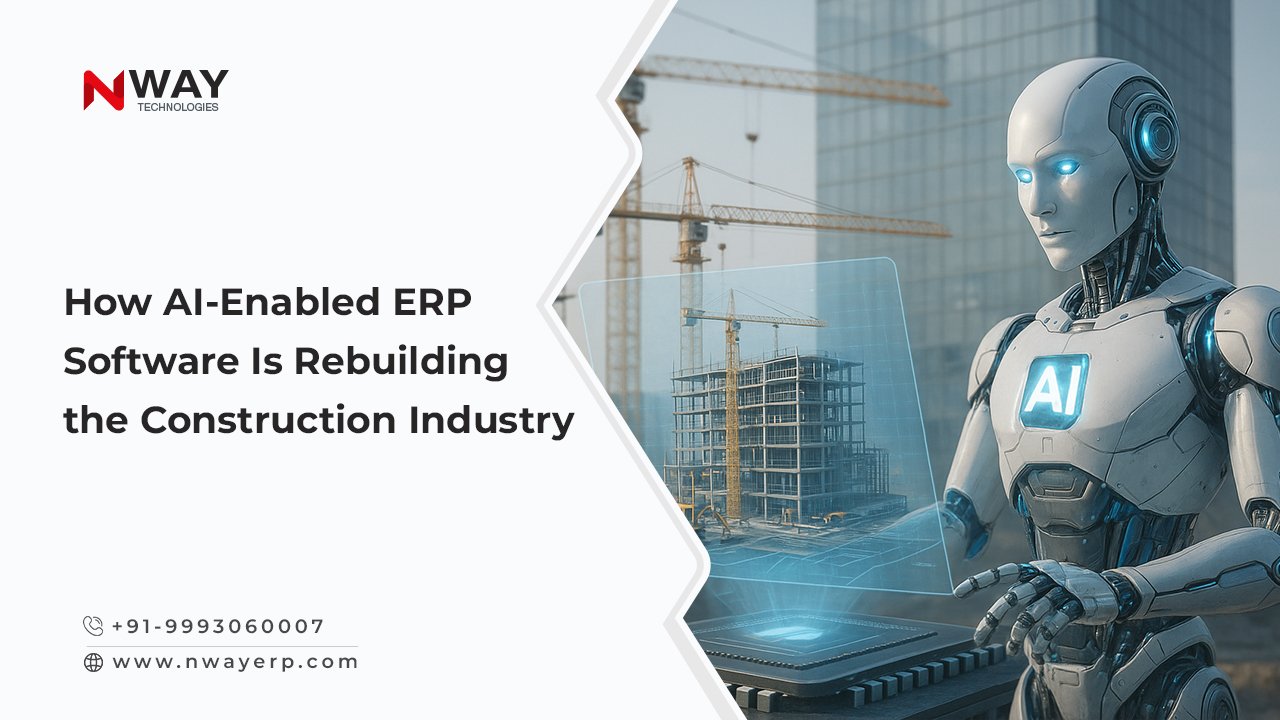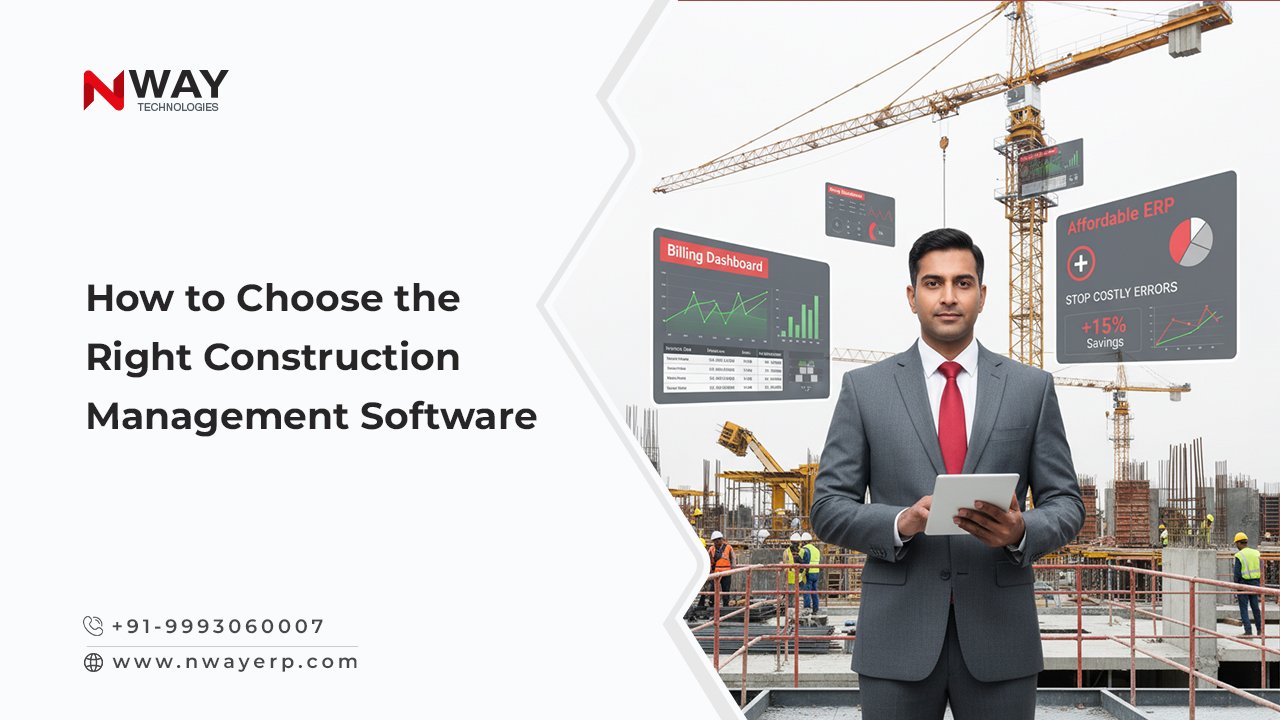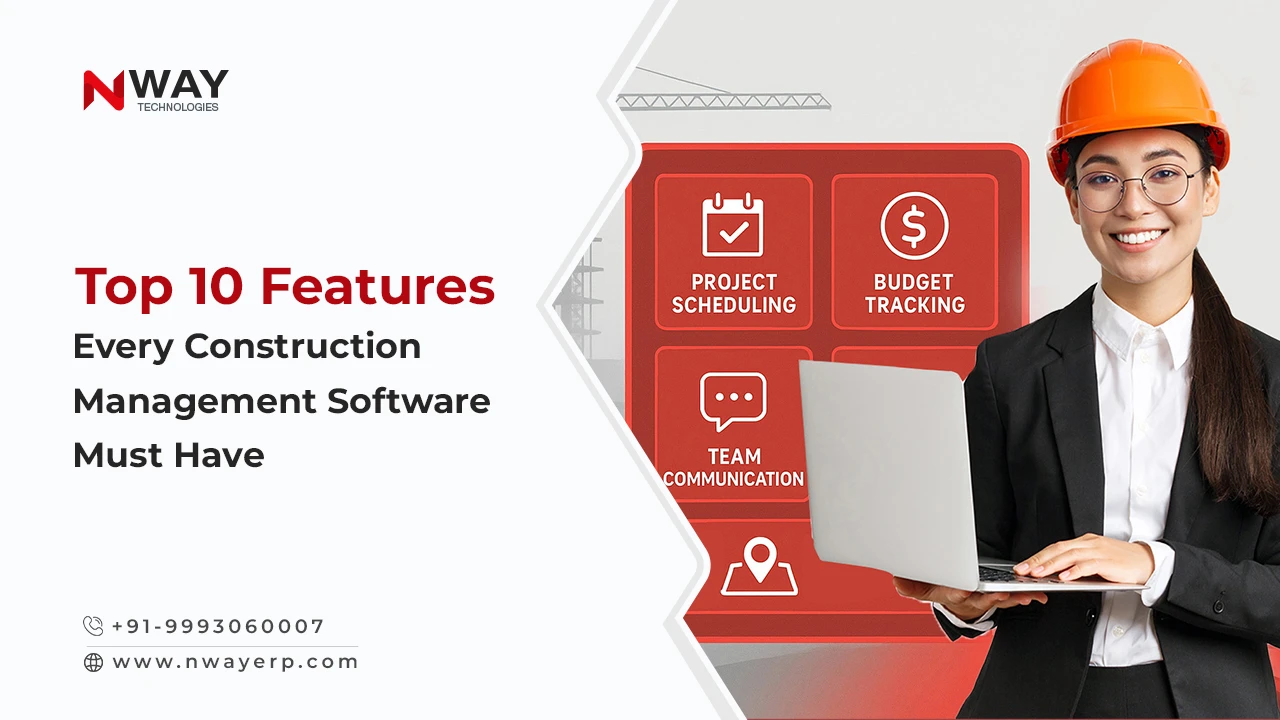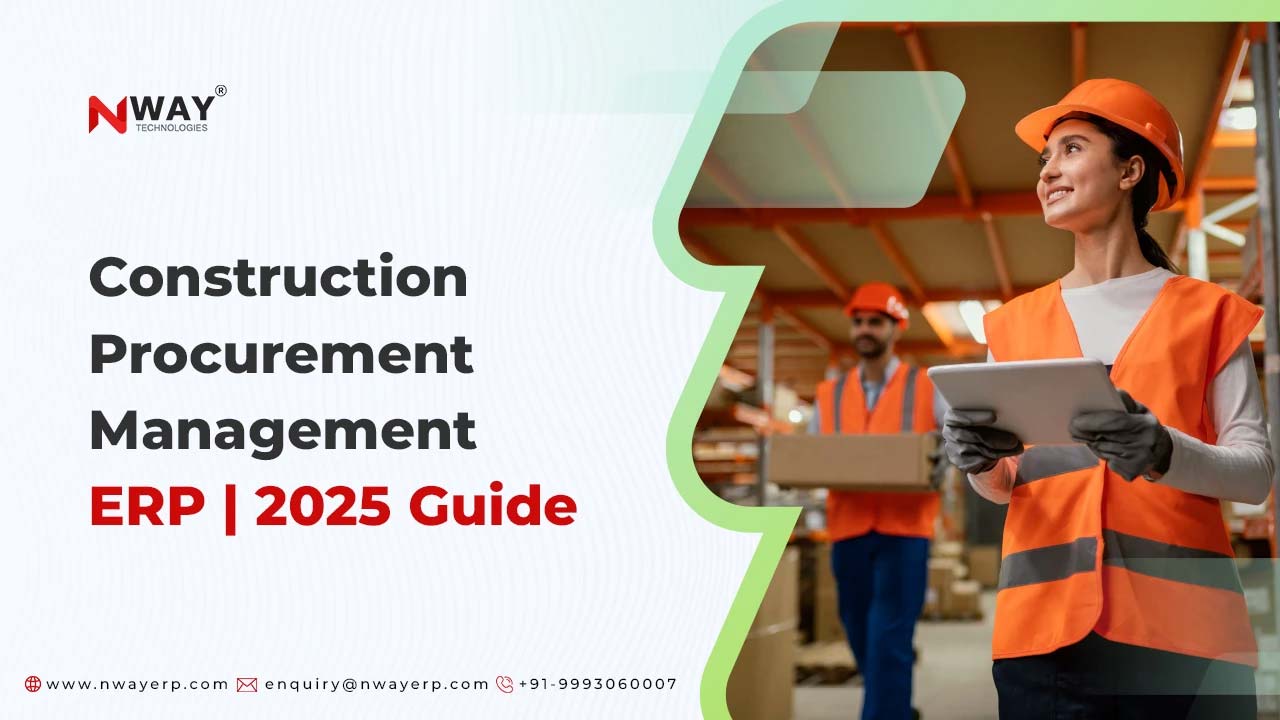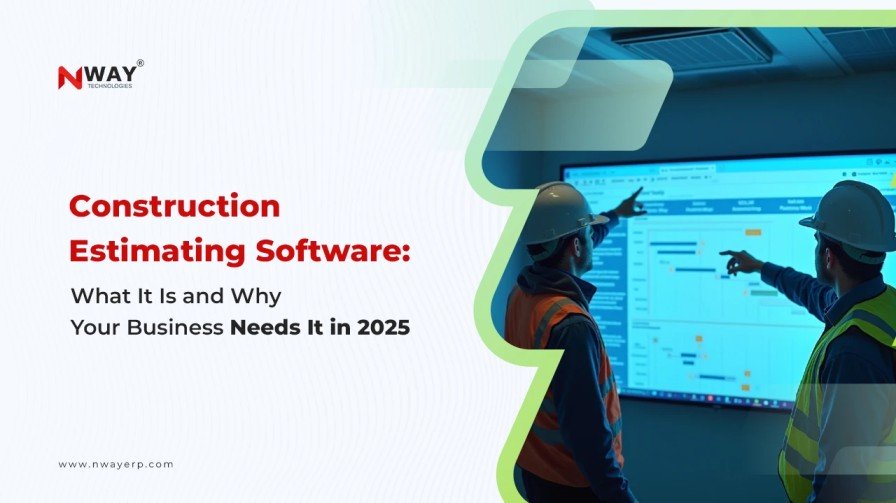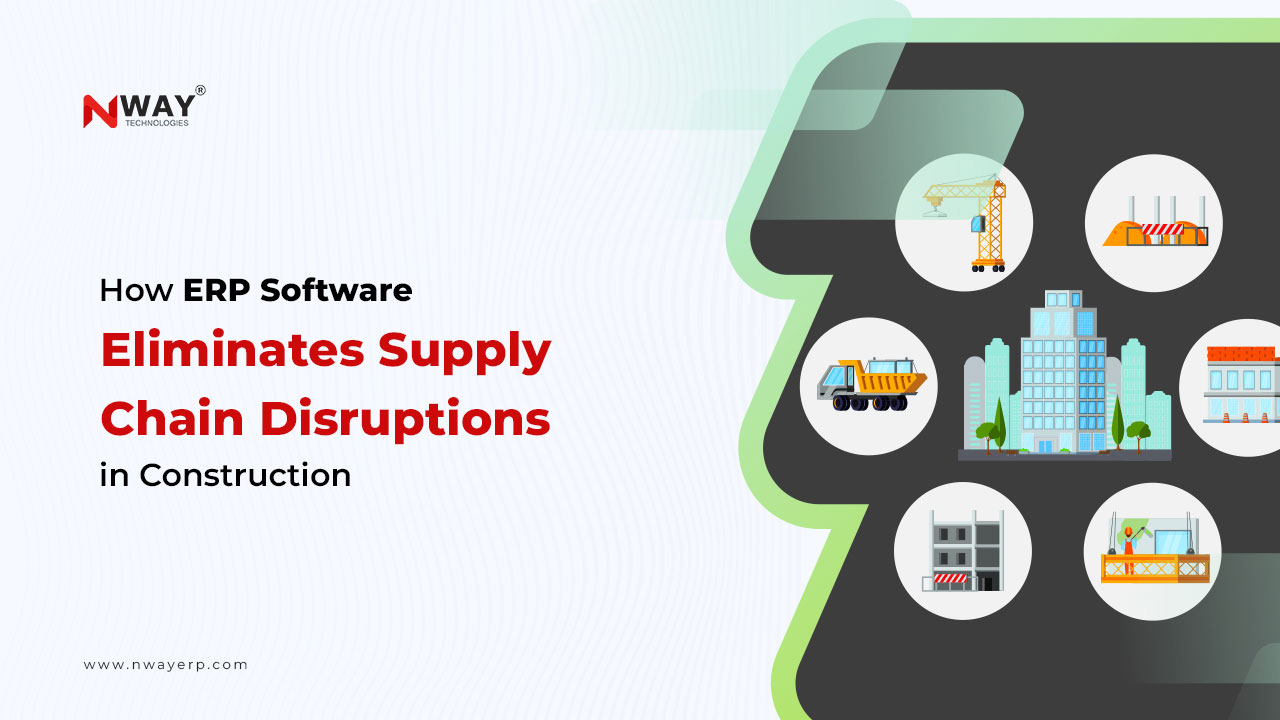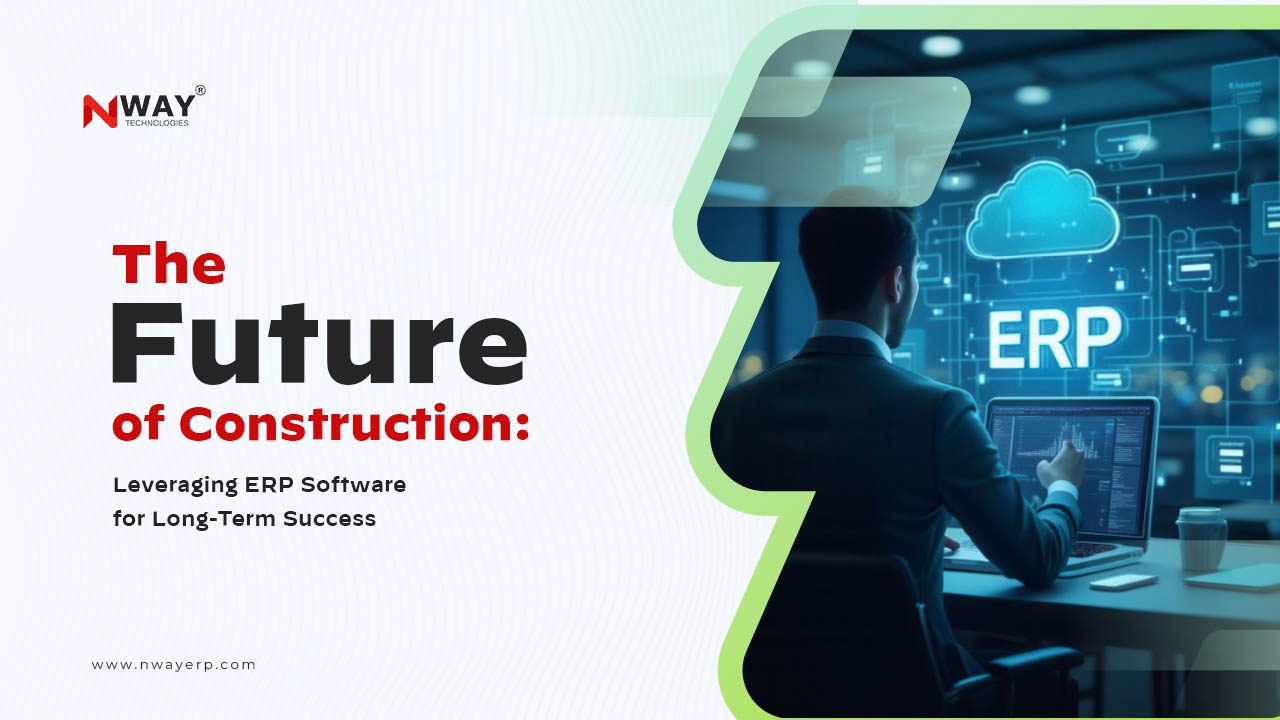In the modern world, business industries worldwide are increasingly opting for digital transformation. The construction industry is also expanding rapidly, having complex operations involving multiple stakeholders. It is paramount for the construction industry to opt for a technology that can streamline their operations. An ERP can specifically act as a bridge to solve all the complex tasks in the construction industry leveraging digital transformation to the manual workings. With ERP integration construction companies can streamline their day-to-day tasks.
Deep delve into this blog to learn how integrating with an ERP system can help construction companies transform their business ensuring smooth operations.
To understand this more, let’s start with what is an ERP system.
What is an ERP System?
Enterprise Resource Planning, known as ERP, is used by software companies to manage and integrate their business processes. An ERP in the construction industry can specifically integrate planning, purchasing, inventory, sales, marketing, finance, human resources, and all other operations. It can help various construction companies like road construction, infrastructure, pipelines, stone crushers, railway construction, and more. This level of integration and visibility is crucial for managing complex projects, ensuring compliance with industry regulations, and delivering projects on time and within budget.
A good ERP system provides ERP integration services that can effectively help streamline all operations effectively and efficiently.
Let’s discuss the importance of ERP integration:
ERP integrations are the most essential components that can help construction companies bridge the gap between different processes, systems, and even departments. It will also help in real-time data management providing comprehensive insights. With smooth ERP integrations, it is easier to track project progress, manage finances, or ensure compliance with industry regulations.
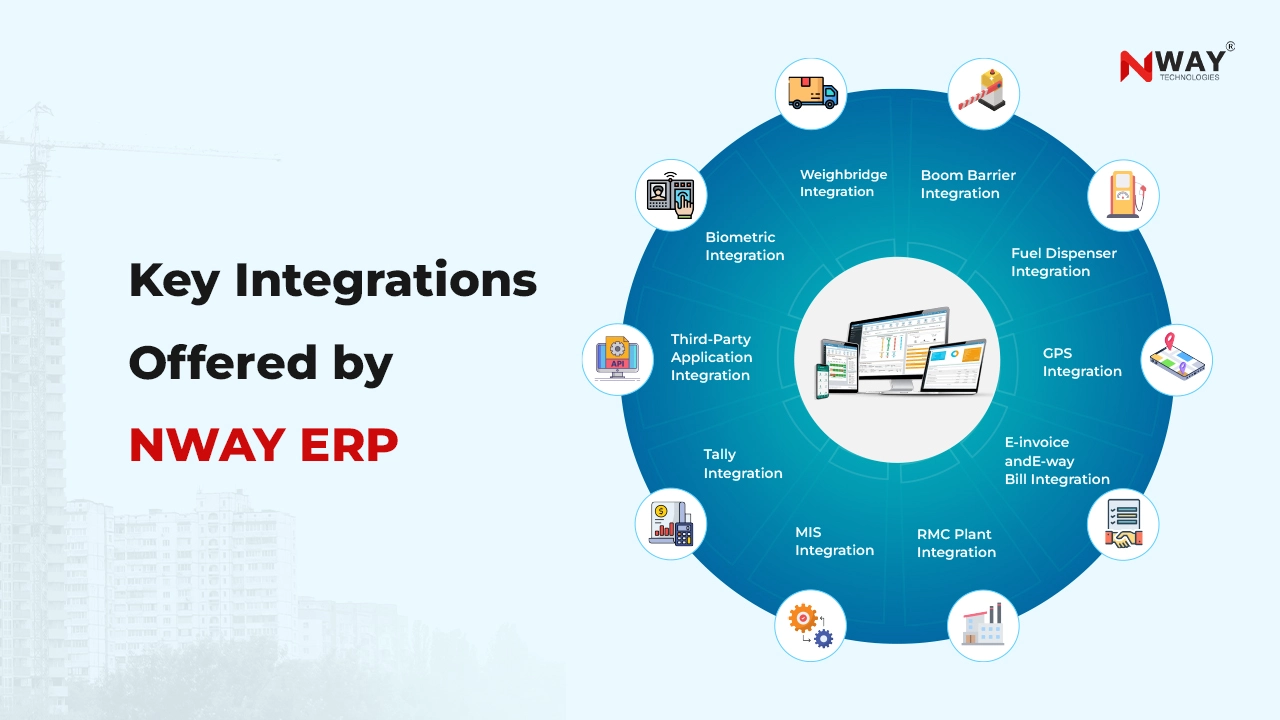
Here are some of the key integrations that must be included in an ERP system:
Biometric Integration
Workforce management is necessary for any construction company. An ERP system provides biometric integration ensuring effective attendance, and compliance with labor laws, along with managing payroll, especially on large construction projects with multiple workers.
It includes features such as:
- Real-time Attendance Tracking
- Enhanced Payroll Accuracy
- Compliance with Labor Laws
Weighbridge Integration with Camera
Material management is the most necessary aspect of construction projects. Any miscommunication or discrepancies can lead to significant delays and financial losses. With an ERP-integrated weighbridge system, it is easier to manage materials with camera integration, ensuring that material management is on point.
The weighbridge integration also includes:
- Accurate Weight Measurement
- Enhanced Security with Camera Integration
- Real-time Data Sync
Boom Barrier Integration
Managing access to construction sites is one of the most crucial operations that need efficient security management. Boom barrier integration with an ERP system facilitates access control, ensuring that authorized personnel and vehicles can access any site.
It provides:
- Automated Access Control
- Real-time Monitoring
- Enhanced Security
Fuel Dispenser Integration
Fuel management is important in construction operations, especially for companies that involve heavy machinery and vehicles. Integrating fuel dispensers with an ERP system helps ensure fuel usage is accurately tracked. It also reduces the chances of wastage and optimizes costs.
Benefits of using Fuel Dispenser Integration:
- Accurate Fuel Tracking
- Cost Optimization
- Automated Reporting
GPS Integration
Managing a fleet of vehicles and heavy machinery for construction businesses is a complex task. ERP’s integration with GPS systems provides real-time tracking of vehicles and assets, enhancing fleet management and operational efficiency.
With GPS integration, you can get:
- Real-time Fleet Tracking
- Improved Asset Utilization
- Enhanced Security with GPS Tracking
E-invoice and E-way Bill Integration
In the current scenario, there are various tax and regulatory compliances that the construction industry needs to follow, some of which are e-invoicing and e-way bill generation. A robust ERP integration with e-invoice and e-way bill systems helps simplify compliance, ensuring that businesses generate and manage these documents with ease.
It provides:
- Simplified E-way Bill Management
- Real-time Data Sync
RMC Plant Integration
Ready-mix-concrete (RMC) businesses involve the production, execution, and delivery of concrete materials. It can be a complex task to manage these operations manually or using multiple documents at a time. With ERP software, it is easier to streamline the entire process for RMC plants, from production, and execution, to the delivery of the finished materials.
With an integration ERP software for RMC plants, it is easier to:
- Automated Production Tracking
- Efficient Delivery Management
- Quality Control
MIS Integration
The construction industry is broad and involves various operations at different levels, sites, projects, and even locations. It is difficult for the upper management to look into all the operations and check anything. With a management information system (MIS) it is possible to get actionable information and insights from all the sites, projects, and locations, into a unified system. It supports the decision-making processes enabling the right decision should be taken by the right personnel at the right time.
Features of MIS are:
- Comprehensive Reporting
- Data-Driven Decision Making
- Real-Time Insights
Tally Integration
Financial management is one of the core operations of any construction company. It involves operations like tracking financial transactions, budget management, and accurate reporting. ERP integration with Tally (a leading accounting software) can offer seamless solutions for managing finances effectively.
It includes:
- Automated Data Sync
- Comprehensive Financial Reporting
- Simplified Tax Compliance
- Streamlined Accounting Processes
Third-Party Application Integration
Every construction business is unique, with its own set of tools and systems. The system you choose must offer you the flexibility to integrate with third-party applications. It is possible only when the system you choose provides you with customizable features suited to the specific business needs.
It should also provide you with:
- Seamless Integration with Different Tools
- Customizable and Tailored Solution
Conclusion
In the construction industry, efficiency, accuracy, and collaboration are necessary. NWAY ERP offers robust integrations that can manage complex ERP solutions. From biometric integrations, and material tracking to financial management. It also provides various other integrations like SMS integration, WhatsApp integrations, and more. These integrations can make the construction business smooth, synchronized, and focused on what matters most targeting growth in all aspects.
NWAY ERP offers integrations for road construction, infrastructure management, railway infrastructure, ready-mix concrete, stone crushers, and more catering to the entire construction industry and streamlining the day-to-day operations in all aspects.
So are you in a construction company and looking forward to eliminating manual interventions and smoothening your operations that can lead to growth and success? NWAY can be your best companion on this journey. It is one of the best construction ERPs in India, with a history of 200+ successful clients in 21 states and 480+ cities, it provides one of the best ERP solutions that can ease the day-to-day operation at any site, project, or location. Contact us today to get a personalized demo from one of our experts.
